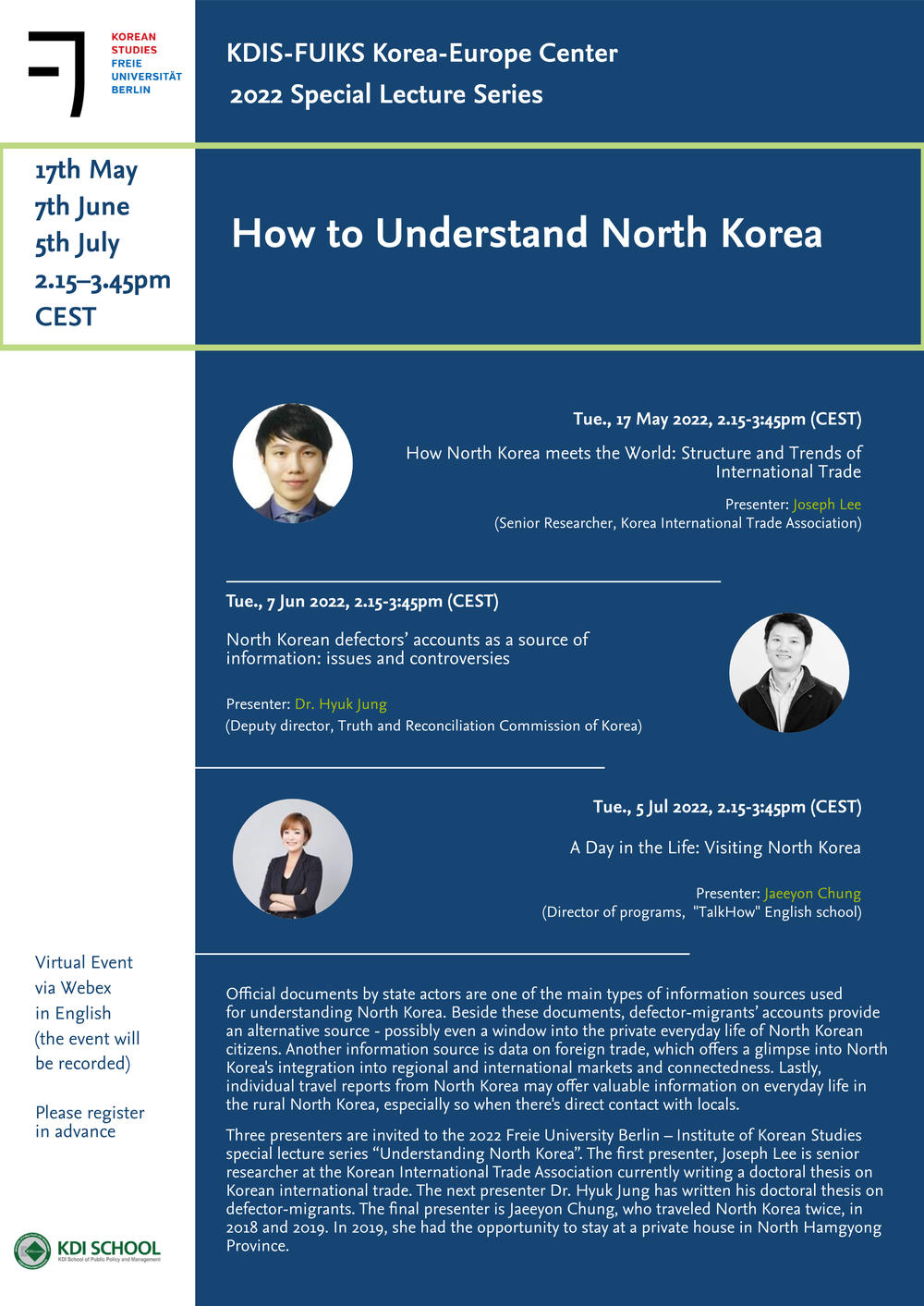North Korean defectors' account as a source of information: issues and controversies
The KDIS-FUIKS Korea-Europe Center invites you to the 2022 online Special Lecture Series: How to understand North Korea.
Official documents by state actors are one of the main types of information sources used for understanding North Korea. Beside these documents, defector-migrants’ accounts provide an alternative source - possibly even a window into the private everyday life of North Korean citizens. Another information source is data on foreign trade, which offers a glimpse into North Korea's integration into regional and international markets and connectedness. Lastly, individual travel reports from North Korea may offer valuable information on everyday life in the rural North Korea, especially so when there's direct contact with locals.
Three presenters are invited to the 2022 Freie University Berlin – Institute of Korean Studies special lecture series “Understanding North Korea”. The first presenter, Joseph Lee is senior researcher at the Korean International Trade Association currently writing a doctoral thesis on Korean international trade. The next presenter Dr. Hyuk Jung has written his doctoral thesis on defector-migrants. The final presenter is Jaeeyon Chung, who traveled North Korea twice, in 2018 and 2019. In 2019, she had the opportunity to stay at a private house in North Hamgyong Province.
North Korean defectors' accounts as a source of information: issues and controversies
Presenter: Dr. Hyuk Jung (Deputy director, Truth and Reconciliation Commission of Korea)
What are the benefits and risks of treating North Korean defectors’ account as a source of research data? This lecture will offer some guidelines on how to approach the defectors’ account and how to avoid pitfalls in using their stories for scientific purposes.
Hyuk Jung received a BA in Political Science from Yonsei University. In 2005, He started his career as an NGO activist in the field of peace and unification movement. He then did his MA in Intercultural Conflict Management at Alice Salomon University Berlin (2015) and earned his PhD in political science at Freie Universität Berlin (2020), where he was awarded summa cum laude. Currently, he is a Deputy Director of Communication Division at the Truth and Reconciliation Commission of Korea. His area of research interest includes theories on human rights and peace, civil society, transitional justice, and critical discourse analysis. He is currently working on turning his dissertation into a book manuscript focused on the discursive construction of North Korean human rights problems.
Moderator: Dr. Hojye Kang
Online event
Time:
Tuesday, 17 May 2022
2:15-3:45 PM
Venue:
Webex (online)
Online registration:
https://fu-berlin.webex.com/fu-berlin-en/j.php?RGID=rcc3ecdc2b61ccb5c998cbac3858f5a0a
Organiser:
Dr. Hojye Kang: hojye.kang@fu-berlin.de

